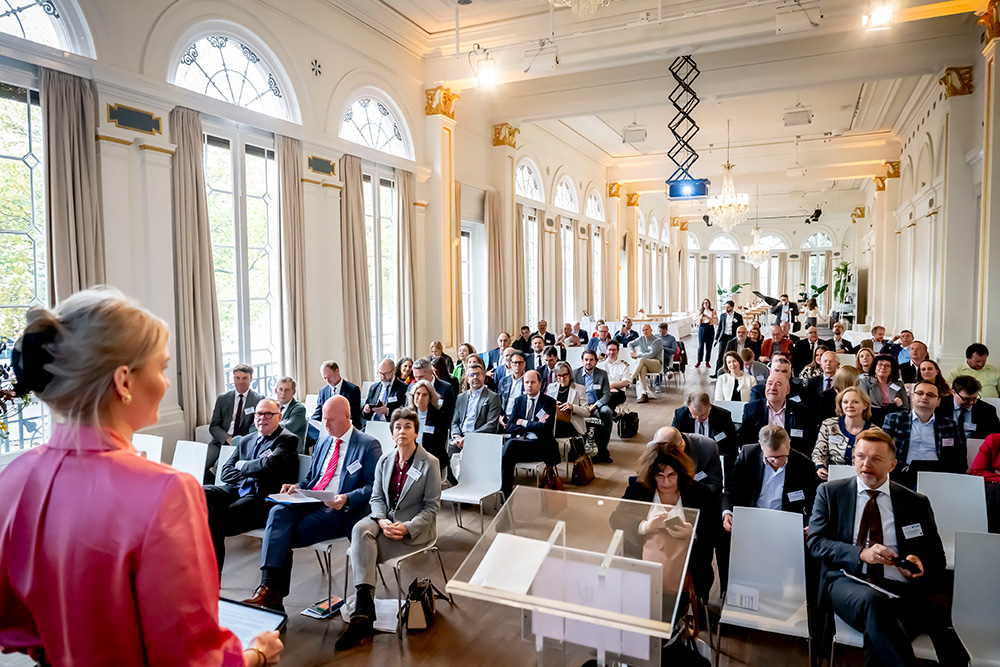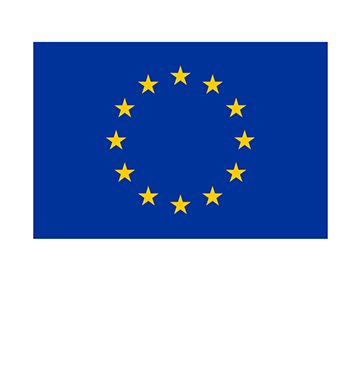Symposium: 10 years of CESNI – “Navigating the future of IWT”
29/10/2025
In the margins of the meeting of the European committee for drawing up standards in the field of inland navigation (CESNI) held on 28 October 2025 in The Hague, the symposium “Navigating the future of IWT” was held on 29 October at the Wereldmuseum in Rotterdam. The goal of this event was to celebrate CESNI’s 10th anniversary and bring together important stakeholders in inland waterway transport in Europe. Speakers and participants were able to discuss the progress made and the challenges ahead.

Source: CESNI
CESNI was set up on 3 June 2015 during the plenary session of the Central Commission for the Navigation of the Rhine (CCNR), which was also held in Rotterdam. Its creation was in line with the CCNR’s desire, shared by the European Union, to reinforce governance in the field of inland navigation at the European level. The role of CESNI is to adopt technical standards regarding vessels, crew and information technology. Regulations at the European and international levels, in particular those of the European Union and the CCNR, may refer to these standards. They are also the subject of recommendations by other international organisations, such as the Danube Commission and the UNECE. The last 10 years have thus seen the adoption of essential standards (ES-TRIN, ES-QIN, ES-RIS) and other key documents for inland navigation (explanatory notices, models, guides, guidelines, frequently asked questions, studies, etc.)
The symposium opened with welcome speeches by Michiel van Kruiningen (Dutch Ministry of Infrastructure and Water Management), Fotini Ioannidou (European Commission), and Lucia Luijten (CCNR). The speakers agreed on the importance of inland navigation as a mode of transport in Europe, with its success being based particularly on harmonised, flexible and modern regulations. To this end, CESNI plays an essential role for standardisation in Europe and beyond. The Committee’s work in recent years has led to major advances for inland navigation, always with a pragmatic and cooperative approach. The diversity of its members and observers is a clear asset for the development of standards in line with the needs of the sector. CESNI is a valuable platform for exchange, enabling the sharing of expertise and resources at the European level. This ongoing, close collaboration between all stakeholders, whether from the public or private sector, will be essential for the challenges ahead: resilience in the face of global change, modal shift, digitalisation, automation, greening of the fleet, development of new technologies, etc. CESNI has the clarity and structure to navigate this transition while ensuring the safety of inland navigation.
The first part of the meeting focused on the challenges facing inland navigation and water management. Martin Wijnen (RWS, Rijkswaterstaat) addressed the subject of waterways and their future-proof development. Current challenges and the responses provided by RWS were discussed. Here too, the importance of cooperation was emphasised, as was the need for a common European vision, adequate financial resources, innovations tailored to the challenges, and the effective development of simplified regulations. Bart Kuipers (Erasmus Centre for Urban, Port and Transport Economics) followed, presenting the main trends for the future of the fleet with the emergence of new types of vessels: more environmentally friendly, smaller and more flexible, adapted to low waters, modular, autonomous and digital, as well as dedicated to new types of cargo. This fleet of the future aims to meet new needs such as the development of the circular economy, the use and/or transport of new types of energy, urban logistics, climate change, labour shortages and strategic and geopolitical needs. Adaptations and developments in infrastructure, competences and working practices and, of course, regulations will be necessary.
The second part of the meeting focused on governance and international cooperation. Manfred Seitz (Danube Commission) presented his organisation and the essential role it plays as a platform for exchange and a centre of expertise for the Danube states. The Danube Commission is also pleased to participate in CESNI’s work, notably to ensure that the operational realities, technical requirements and regional challenges specific to the Danube are taken into account. To this end, CESNI – a real success story at the European level – and its importance for the development of safe, innovative and efficient inland navigation were highlighted. Benjamin Hofmann (ETH Zurich) shared his research on governance. He specified that one of the main conclusions is that complex governance – such as in inland navigation – offers clear advantages since it is flexible and resilient to shocks. Deepening existing roles and coordination can bring additional added value. Furthermore, standards are ideally designed in a progressive approach, also involving other policies (e.g. financing) that support innovation step by step. Finally, standardisation depends on knowledge: it is therefore important to closely involve innovative companies and researchers.
CESNI Chair Ivan Bilić-Prcić concluded the symposium by summarising CESNI’s major successes over the last few years: the development of harmonised standards that enhance the safety and efficiency of inland navigation, the establishment of “bridges” between regulators, the industry and experts, and the establishment of a firm collaboration that leads to inland navigation in Europe becoming stronger, greener and more competitive. CESNI is ready to take on future challenges thanks to its solid foundations as well as the trust and cooperation that unite its members and observers.
CESNI warmly thanked the Dutch delegation for its hospitality and welcome in Rotterdam, a major city for inland navigation, as well as for its two-year presidency of the CCNR, which will end in December 2025. Sincere thanks were also extended to all the speakers and participants who had made this symposium such a success.
For more information about the programme, speakers, speeches and presentations, a dedicated page has been created.

